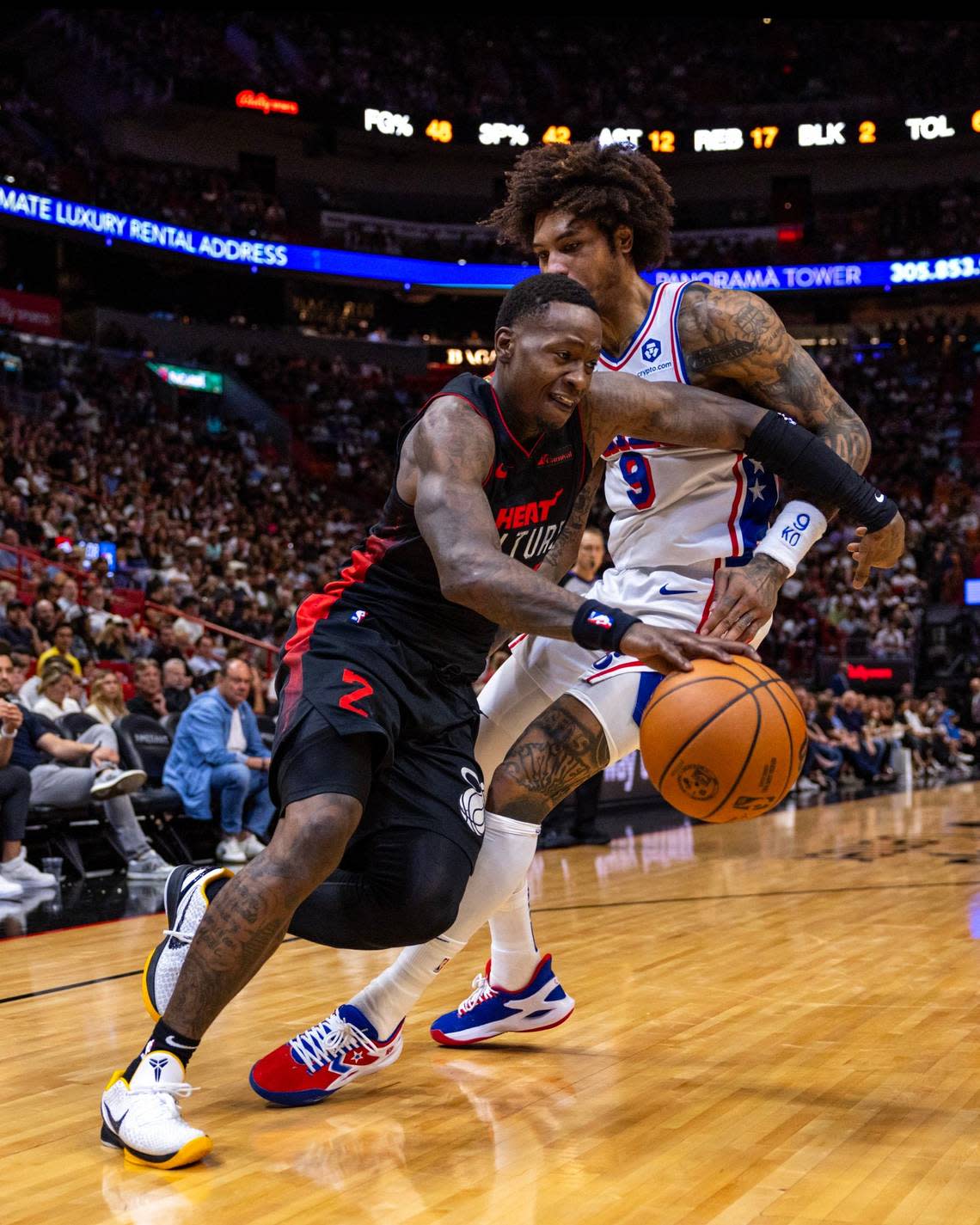What the Heat can and cannot do in free agency, and the Rozier impact on that

When the Heat opted to take on the final 2 ½ years of Terry Rozier’s contract in January, it largely eliminated two pools of potential targets this summer: 1). Players who would consider the $12.4 million non taxpayer’s midlevel exception and 2). Players who, for the first time in NBA history, could be traded for that exception.
It also made keeping Caleb Martin highly unlikely and retaining Haywood Highsmith far more difficult.
And it also significantly decreased the chance of the Heat signing any free agent above a minimum contract this summer.
The Heat will have a $5 million taxpayer midlevel exception, but it’s likely to go unused because of the heavy tax ramifications. In replacing Kyle Lowry’s expiring contract with Rozier’s multiyear deal, the Heat left itself near $10 million above next season’s luxury tax line.
Flipping Lowry and a first-round pick for Rozier could be justified at the time — and could be justified, certainly to an extent, today — because the Heat needed an infusion of offense and Rozier provided that at times, closing his first Heat season averaging 16.4 points per game on 37.1 percent shooting in 31 games, before a neck/spinal injury sidelined him for the final six games. (Pat Riley said doctors expect Rozier to make a full recovery.)
But in taking on the $24.9 million and $26.6 million due Rozier during the next two seasons, Miami made the decision that Rozier was better than anyone it could have signed (or traded for) at a salary of $12.4 million or less this summer, even at the expense of the 2027 or 2028 first-round pick that Miami must send Charlotte.
The trade aspect of that previous sentence is new. As part of the new labor agreement, teams can trade their non taxpayer midlevel exception for a player making as much as the value of the exception.
Players who would be eligible to be traded for a midlevel exception this summer include Lakers and former Heat guard Gabe Vincent; Bulls guards Alex Caruso, Ayo Dosunmo and Jevon Carter; Bucks forward Bobby Portis and Pelicans forward Herb Jones, among others. That won’t be an avenue available to Miami in the wake of the Rozier trade.
But Miami likely is better off with Rozier than any of those players who would be available anyway. (Several on that list would not have been available.)
If the Heat hadn’t traded for Rozier, it might have used exception money this summer to sign a free agent point guard from a class including the Lakers’ Spencer Dinwiddie, Washington’s Tyus Jones and Utah combo guards Talen Horton-Tucker and Kris Dunn. Rozier ultimately was better than any of those options.
The Heat’s payroll, with Rozier factored in, will take the Heat out of the mix for players who hope to command anything more than the league minimum salary, unless the Heat slashes salary in a trade.
That group of players — not elite free agents but players positioned to get some exception money — include Nets and former Miami Hurricanes guard Lonnie Walker IV (9.7 points this season and 38.4 percent on threes), Oklahoma City forward Gordon Hayward, Philadelphia guard Kelly Oubre and Toronto guard Gary Trent Jr.
This summer’s free agent class will be headlined by Paul George, James Harden, DeMar DeRozan, Klay Thompson, Pascal Siakam (who’s expected to re-sign with Indiana), Miles Bridges, Tobias Harris, Buddy Hield, Malik Monk and very likely several with player options: LeBron James, DeAngelo Russell, OG Anunoby and Kentavious Caldwell-Pope.
A few of those (obviously not James or Anunoby or George or Siakam) might need to settle for non-taxpayer midlevel exception money, which the Heat doesn’t have available unless it sheds a lot of salary without taking nearly as much salary back.
It wouldn’t be impossible for Miami to acquire one of those 13 players in a trade, but there are challenges under the new labor agreement.
Teams cannot acquire players in sign-and-trade deals in the offseason if the incoming salary keeps them above the first apron. The Heat’s projected payroll (presuming Kevin Love, Josh Richardson and Thomas Bryant opt in and Caleb Martin opts out) would be $181.8 million, slightly above the punitive first apron of $179 million and not far from crossing the ultra-punitive second apron of $190 million with a few roster spots to fill for next season.
So if Miami theoretically wanted to try to acquire George - who could simply re-sign with the Clippers or sign into Philadelphia’s cap space — it couldn’t do it if keeps/leaves Miami over the first apron.
So trading for a player who isn’t a free agent might ultimately be easier than trading for a player who is.
Here’s one thing to keep on mind on Rozier: Though his scoring would have value on the Heat next season, his contract (with two years remaining at manageable money) also could have value to facilitate a trade for a high-salary All Star player.
